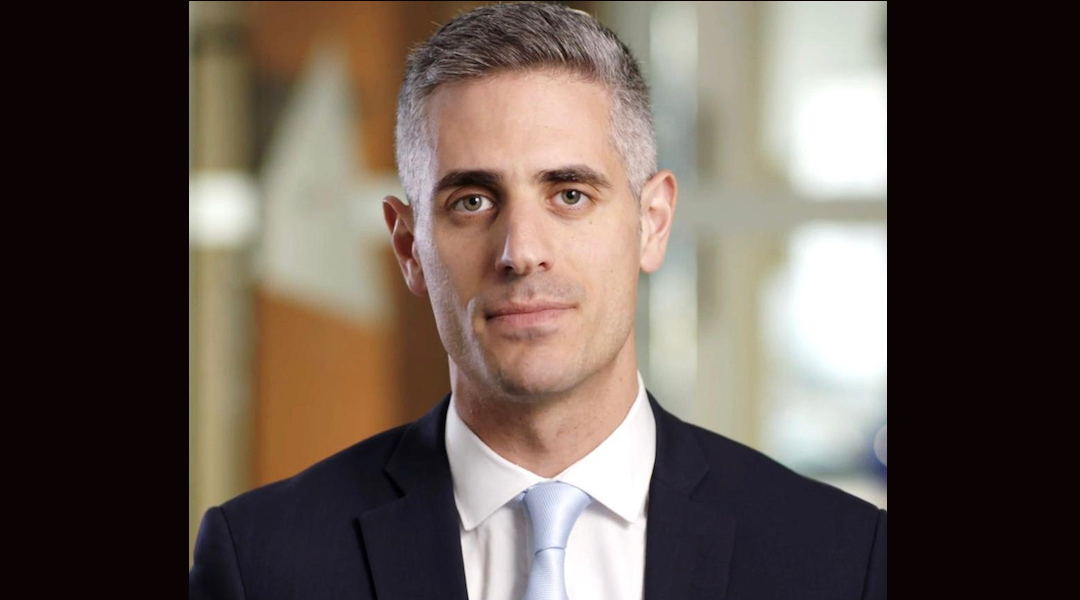Avi Mayer, prominent pro-Israel activist, named editor of the Jerusalem Post
Mayer is perhaps best known for his presence on Twitter, where he has more than 140,000 followers

Avi Mayer, who has amassed a large Twitter following as a pro-Israel activist, will be the next editor-in-chief of the Jerusalem Post. (Courtesy of Mayer)
(JTA) — Avi Mayer, a pro-Israel activist and communications professional with a large following on social media, has been named the next editor-in-chief of the Jerusalem Post.
Mayer, 38, will take over for the current editor of the 90-year-old English language newspaper in mid-April, after Passover.
“I look forward to working with the Post’s outstanding staff to continue upholding the highest standards of journalistic excellence, to offer our readers content of relevance and quality, to fortify the paper’s position as a leading media outlet in Israel and the Jewish world, and to lead it into the future,” Mayer said in a statement, according to the Post.
Mayer, who was born in New York and lives in Jerusalem, comes to the role with a background in communications and online activism rather than journalism. He most recently served as the managing director of global communications and public affairs for the American Jewish Committee, and previously served as the spokesperson for the Jewish Agency for Israel. He also served in the spokesperson’s unit of the Israel Defense Forces.
But Mayer is perhaps best known for his presence on Twitter, where he has more than 140,000 followers; posts a mix of news updates, advocacy for Israel and pictures of freshly-baked challah; and has clashed with anti-Israel accounts.
His appointment comes at a time of upheaval in Israel, as the country’s right-wing government pursues an overhaul of the judicial system that would sap the Supreme Court of much of its power and independence. The legislation’s backers say it would give voice to the country’s right-wing majority, but it has sharply divided the country, led to mass street protests and spurred a diverse chorus of public figures to criticize the reform as a danger to Israeli democracy.
His recent posts on Israel’s current judicial crisis have mostly focused on documenting the protests, though he has expressed his opinion in Hebrew from time to time on Israeli domestic politics. Mayer tweeted the word “insane” regarding news that the far-right national security minister, Itamar Ben-Gvir, was defunding a program because it was run by the American Jewish Joint Distribution Committee, which Ben-Gvir called “leftist.”
And Mayer tweeted in Hebrew, regarding Israeli President Isaac Herzog’s compromise plan on judicial reform, “The outline has been presented. The time has come for both sides to climb down from their trees and begin dialogue. Enough.” That position appears to dovetail with the Jerusalem Post’s editorial stance, which has recently criticized Israeli Prime Minister Benjamin Netanyahu and urged compromise on his coalition’s judicial overhaul.
The Jerusalem Post, founded in 1932, was for decades the most prominent English-language newspaper published in Israel. Now it is one of several news organizations covering Israel in English, including the Times of Israel, founded by a former Jerusalem Post editor, and an English-language edition of the Hebrew newspaper Haaretz. It is owned by Eli Azur, who also owns multiple Hebrew-language outlets. In recent decades, the paper, published six days a week in print, has been seen as right-leaning, though its website touts the paper’s “centrist and pluralistic stance.”
Yaakov Katz, the outgoing editor, served in the role for seven years and will continue to write a column for the paper. Katz formerly served as the paper’s military correspondent and served as an advisor to future Israeli Prime Minister Naftali Bennett before becoming editor-in-chief.
The newspaper’s previous editors include Bret Stephens, who is now a conservative columnist for the New York Times, and David Horovitz, who went on to found the Times of Israel, an online competitor to the Post.
This article originally appeared on JTA.org.
A message from our Publisher & CEO Rachel Fishman Feddersen

I hope you appreciated this article. Before you go, I’d like to ask you to please support the Forward’s award-winning, nonprofit journalism so that we can be prepared for whatever news 2025 brings.
At a time when other newsrooms are closing or cutting back, the Forward has removed its paywall and invested additional resources to report on the ground from Israel and around the U.S. on the impact of the war, rising antisemitism and polarized discourse.
Readers like you make it all possible. Support our work by becoming a Forward Member and connect with our journalism and your community.
— Rachel Fishman Feddersen, Publisher and CEO

























